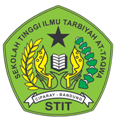Tafsir Tarbawi as the Foundation for Humanist Education in Islam
DOI:
https://doi.org/10.61166/classroom.v2i1.22Keywords:
Tafsir Tarbawi, humanist education, Surah Al-Anfal verse 61, Islamic education.Abstract
This research examines the role of Tafsir Tarbawi as the foundation of humanist education in Islam with a focus on Surah Al-Anfal verse 61. This verse emphasizes the importance of peace even in conflict situations, which can be used as a basic principle in the development of an Islamic education system that is oriented towards human values. The methodology used in this research is library study (library research), by analyzing various literature related to Tarbawi Tafsir, interpretation of verses from the Koran, and the concept of humanist Islamic education. The research results show that Tafsir Tarbawi can provide a deep perspective on how this verse can be applied in building students' character based on peace, tolerance and mutual understanding. Based on Asbabun Nuzul Al-Quran Surah Al-Anfal (8:61), Tafsir Wajiz, Tafsir Tahlili, Meaning of the Verses this research also highlights the relevance of applying these principles in the Islamic education curriculum to create a generation that is responsible and has noble character. It is hoped that the results of this research can make a significant contribution to the development of Islamic education that is more humanistic and in accordance with the demands of the times.
References
Azra, A. (2003). Pendidikan Islam: Tradisi dan Transformasi. Logos Wacana Ilmu.
Alim Mujahidin, & Abdul Matin bin Salman. (2024). Analysis of Writing Styles in Bi Al-Ma’tsur’s Tafsir Books. Maklumat: Journal of Da’wah and Islamic Studies, 2(1), 39–49. https://doi.org/10.61166/maklumat.v2i1.11
Bruner, J. S. (1960). The Process of Education. Harvard University Press.
Badran, N., & Al-Atiyat, A. (2017). Integrating Spirituality in Education: A Contemporary Approach. Routledge.
Dewey, J. (1916). Democracy and Education: An Introduction to the Philosophy of Education. Macmillan.
Fauzi Fathur Rosi, & Zainuddin. (2024). The Tradition of Reading Surah Al-Rahman (Living Qur’an Study at Ma’had IDIA Putra Prenduan Sumenep). Al-Bunyan: Interdisciplinary Journal of Qur’an and Hadith Studies, 2(1), 1–8. https://doi.org/10.61166/bunyan.v2i1.9
Goleman, D. (1995). Emotional Intelligence: Why It Can Matter More Than IQ. Bantam Books.
Muhaimin. (2006). Pendidikan Karakter dalam Islam. PT. Remaja Rosdakarya.
Nanih Nurhayati and Iskandar Mirza (2025) “The Role of Tafsir Tarbawi in the Development of Islamic Personality in Early Childhood”, al-Afkar, Journal For Islamic Studies, 8(1), pp. 77–89. doi: 10.31943/afkarjournal.v8i1.1788.
Nasr, S. H. (1987). Islamic Education: Its Meaning and Importance. Al-Faisal Publishing.
NUOnline. (n.d.). Surat Al-Anfal Ayat 61: Arab, Latin, Terjemah dan Tafsir Lengkap. https://quran.nu.or.id/al-anfal/61
Tatang Sholahuddin Ma’ruf, & Iskandar Mirza. (2025). Tarbawi’s Tafsir as a Philosophical Foundation for Islamic Education. Kasyafa: Jurnal Pendidikan Agama Islam, 2(1), 1–8. https://doi.org/10.61166/kasyafa.v2i1.41
Zins, J. E., Elias, M. J., & Greenberg, M. T. (2007). Building Academic Success on Social and Emotional Learning: What Does the Research Say? Teachers College Press.
Downloads
Published
How to Cite
Issue
Section
License
Copyright (c) 2025 Ach. Muqoddas, Iskandar Mirza

This work is licensed under a Creative Commons Attribution 4.0 International License.













